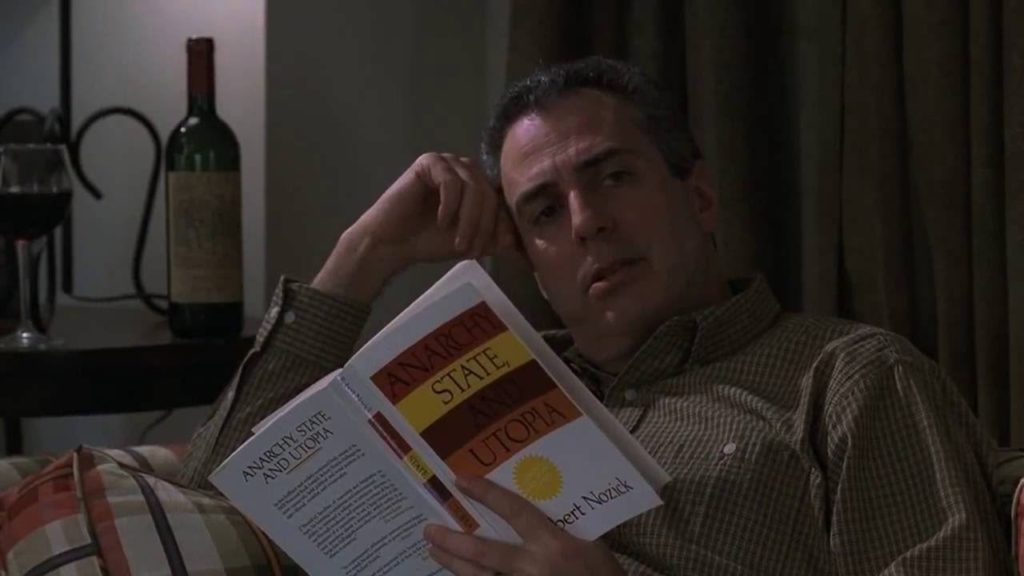The Appropriations Clause did not enact Mr. Paul Dans’s 2025 Project

I hope yesterday’s news about Sam Alito’s light treason doesn’t completely distract from how utterly insane and lawless his dissent in CFPB v. CFSAA is. I suppose I could just note that this is a case about the administrative state and quote “THOMAS, J., delivered the opinion of the Court” and drop the mic, but it’s worth unpacking this a little.
The place to start is that this is the rare Supreme Court case that can be described as “easy.” The Appropriations Clause in Article I says that “[n]o Money shall be drawn from the Treasury, but in Consequence of Appropriations made by Law.” The Consumer Financial Protection Bureau is funded by appropriations made by law. It is true that Congress provided a funding source that is permanent unless the statute is amended or repealed, but nothing explicit or implicit in the text forbids that structure. As Thomas says, it’s really that easy:
Under the Appropriations Clause, an appropriation is simply a law that authorizes expenditures from a specified source of public money for designated purposes. The statute that provides the Bureau’s funding meets these requirements. We therefore conclude that the Bureau’s funding mechanism does not violate the Appropriations Clause.
Nor does is there any historical practice that would complicate the clear command of the relevant text. Thomas traces the understanding of “appropriations” back to the founding, and Kagan’s concurrence — pointedly joined by Kavanaugh and Barrett as well as Sotomayor — provides countless more examples:
I write separately to note that the same would have been true at any other time in our Nation’s history. “‘Long settled and established practice’ may have ‘great weight’” in interpreting constitutional provisions about the operation of government.
And here just such a tradition supports everything the Court says about the Appropriations Clause’s meaning. The founding-era practice that the Court relates became the 19th-century practice, which became the 20th century practice, which became today’s. For over 200 years now, Congress has exercised broad discretion in crafting appropriations. Sometimes it has authorized the expenditure of a sum certain for an itemized purpose on an annual basis. And sometimes it has departed from that model in one or more ways. All the flexibility and diversity evident in the founding period has thus continued unabated, making it ever more obvious that the CFPB’s funding accords with the Constitution.
Ignoring both the plain text and literally centuries of settled practice requires remarkable amounts of illogic and bad faith. Starting with just lying about what the scholarship you quote says. Over to you, Mr. McLuhan:
2/ Alito's dissent cites my work 8 times, which is lovely and all, but the dissent is wrong, and a remotely attentive reading of that work would make it clear why. https://t.co/lp0KcLOl4t— Josh Chafetz (@joshchafetz) May 16, 2024
And then there’s stuff like this:
Alito believes the Federal Reserve is distinguished from the CFPB because it was created through intense bargaining between different factions in the aftermath of financial panic. pic.twitter.com/LLhCNAzJpV— Jacques (@JacquesPierreJP) May 16, 2024
I mean, come on. And this being Alito, he wears the policy preferences that are the sole driver of his lawless arguments on his sleeve:
Alito seething with rage at the idea that the Consumer Financial Protection Bureau is using its authority to protect consumers pic.twitter.com/Sct6QU5g7m— Scott Lemieux (@LemieuxLGM) May 16, 2024
Setting aside Alito’s palpable rage that the Consumer Financial Protection Bureau is fulfilling its mandated duty of protecting consumers, gaze in wonder at Alito’s assertion that Congress “cannot control of monitor the CFPB’s use of funds.” Congress did not surrender this power at any point! It can modify or defund the CFPB anytime it wants! Alito repeats this silly argument elsewhere:
This is a wild thing to say. Congress can defund the CFPB at any time! It can change the funding mechanism or zero out the budget! It can abolish the CFPB entirely! In no way are the people and our "elected representatives" powerless to alter its funding! https://t.co/Og4D0x9VjI pic.twitter.com/MMA2zgoj9w— Mark Joseph Stern (@mjs_DC) May 16, 2024
What Alito is really saying is that it’s not enough for Congress to retain control over appropriations — 40 senators must have an annual opportunity to unilaterally defund the CFPB through inertia even if the Congress that enacted the statute did not want that for obvious reasons. This is not a very attractive policy view, as its intention is to make the federal regulatory state completely dysfunctional. More importantly, is has no basis in text, history, or anything that could be called a legal source. It’s the deranged product of some federal judges who see no barrier to imposing their incredibly unpopular and reactionary views on the country. And in this case, the author is an actual seditionist. The textualists!
In fairness, inside sources have informed me that the dissent was researched, drafted, and edited by Mrs. Alito.


